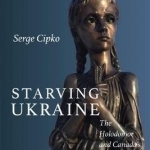Starving Ukraine: The Holodomor and Canada's Response
BookThis item doesn’t have any media yet
2017 | History & Politics
"There is no comprehensive study of the Canadian reaction to the famine in the English or Ukrainian language, [...] so this is a major contribution. It is an interesting story and an important one for Canadian and Ukrainian history." -- Roman Serbyn In 1932-33, a famine -- the Holomodor ("extermination by hunger") -- raged through Ukraine, killing millions. Although the Soviet government denied it, news about the catastrophe got out. Through an extensive analysis of the newspapers, political speeches, and protests, Starving Ukraine examines both Canada's reporting of the famine and the country's response to it, highlighting the importance of journalists and protestors. "Cipko has assembled a rich collection of documents about the dissemination in Canada of news about the Great Ukrainian Famine and how Canadians reacted to this information. He has also compiled a bibliography of historical literature on that tragedy presented as famine, genocide and Holodomor. The work [makes] an important contribution to the study of Canadian mainstream and ethnic newspapers, how they handled information on foreign catastrophes, and how the two domains of journalism interacted."
- Roman Serbyn, editor of Famine in Ukraine, 1932-1933 "[A]n important contribution." - Thomas M. Prymak, author of Gathering a Heritage: Ukrainian, Slavonic, and Ethnic Canada and the USA
Related Items:
| Published by | University of Regina Press |
| Edition | Unknown |
| ISBN | 9780889775060 |
| Language | N/A |
Images And Data Courtesy Of: University of Regina Press.
This content (including text, images, videos and other media) is published and used in accordance
with Fair Use.
